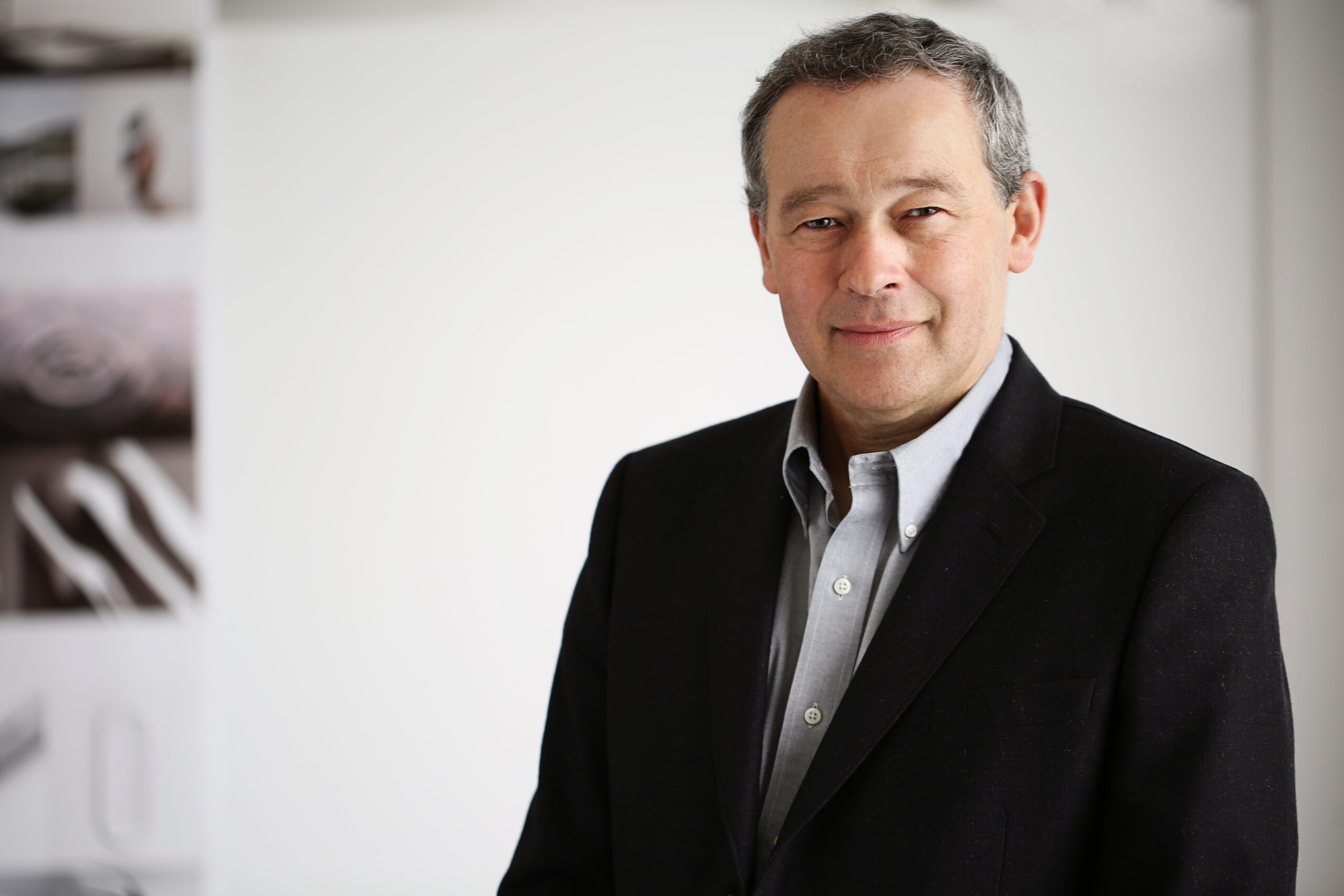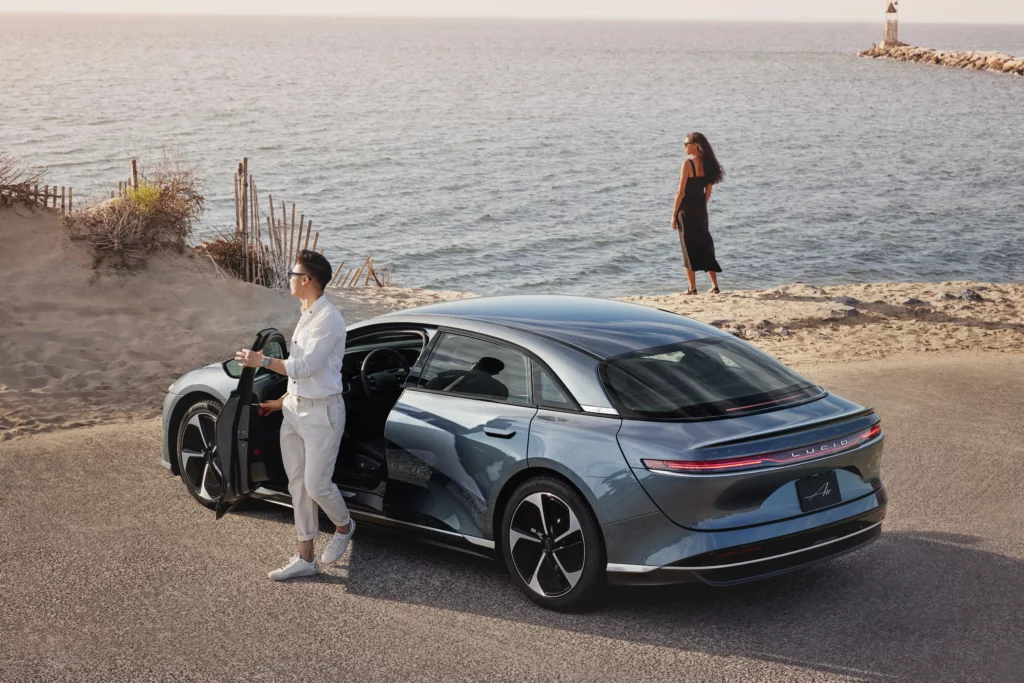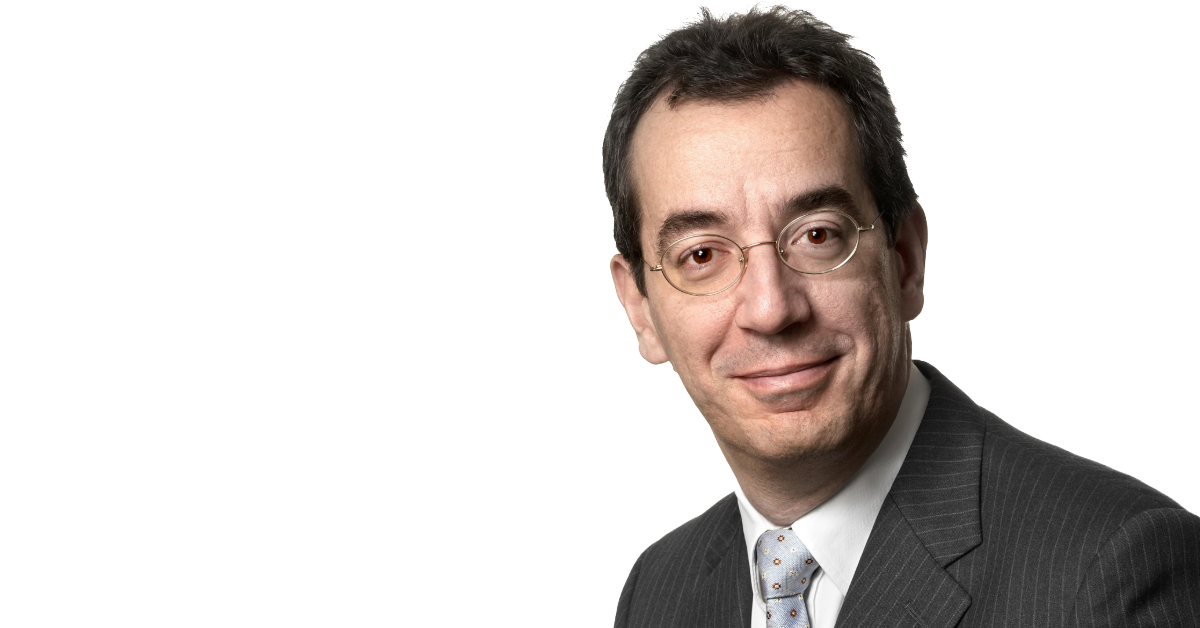Peter Rawlinson, Lucent Motors’ CEO and CTO, talks about his company’s high-end car strategy.

Do not compare Lucid Motors to Tesla! Both companies are based in the US and specialize in all-electric cars, but the comparison does not go much further than that.
Founded in 2007 and publicly traded on the Nasdaq, Lucid Motors is an American electric vehicle manufacturer known for its luxury models. Lucid aims to revolutionize the electric vehicle experience with in-house developed technology and innovative design to deliver both efficiency and sustainability. Lucid vehicles are designed at its California headquarters, assembled at its Arizona factory, and engineered with a commitment to changing the world. In 2023, Lucid Motors delivered 6,001 vehicles and generated annual revenues of $595.3 million, but the bottom line is still largely in the red.
Against this background, we interviewed Peter Rawlinson, Chief Executive Officer and Chief Technology Officer, at the Geneva International Motor Show (GIMS).
Recently, many car manufacturers have decided not to exhibit at European motor shows. Why was it important for you to exhibit at the Geneva International Motor Show?
Switzerland is a key market for Lucid. Besides, we are currently targeting four European countries, and Switzerland is one of them. I do appreciate the historical dimension of the Geneva Motor Show, where, for example, the iconic Jaguar E-Type was launched in 1961. I believe that such a traditional show is the ideal place to unveil new high-tech cars, rather than launching them online. For this reason, we introduced in Geneva three new state-of-the-art all-electric models to the European market for the first time: the Gravity SUV, the Air Sapphire, and our rear-wheel-drive version of the Air Pure.

What are the attributes of a luxury car in the era of electric vehicles?
Our cars must ride at least as well as a Mercedes S-Class, drive like a Porsche 911, and provide an amazing experience. This may seem unbelievable, but it is the result of our ultra-advanced technologies that collectively create extraordinary and groundbreaking cars where the whole is greater than the sum of the parts. We have the world’s most advanced powertrain, the longest range per kWh (100 km on 13 kWh in our Lucid Air Pure model), and the fastest chargers. Thanks to our breakthroughs in technology and miniaturization, our cars are smaller and more aerodynamic on the outside, but larger on the inside, providing more space and comfort for drivers and passengers.
Most car manufacturers sell through external dealers located in the suburbs. Why do you use your own showrooms in city centers like Tesla?
We sell through our own showrooms not because we want to copy Tesla, but to curate the customer experience. Our relationship with our customers is too precious to leave it to third parties. This direct approach is the best way to demonstrate how extraordinary and lifestyle-changing our cars are.

How would you describe your typical and target customers?
Our customers are free thinkers, trendsetters and curious. They will not buy an established product just because they have always done so. In addition, our customers are also very discerning, which means they see things like better products that other people cannot. If you were not discerning, you would just buy a Mercedes car because it is a safe choice.
Companies like Tesla do not advertise, but their brand is better known than General Motors’ brands, despite spending $1 billion a year on advertising. What does it inspire you?
It takes time to build awareness of a luxury brand. We will do this in a refined, discreet, and understated way because that is how it will resonate with our customers, not by being ostentatious.
Some companies, such as Porsche, have a virtually unlimited number of options, but you have the opposite strategy…
Since we are in Switzerland, let me talk about watchmaking. Rolex does not confuse its customers with too many options, and Rolex’s classic models stay true to their core and change very little over the decades. However, other high-end watch brands have so many models and options that it is confusing and almost overwhelming. For Lucid, the way to build a truly timeless, iconic image is to focus on just a few features, like being the world’s most aerodynamic car in production. We just need to be in the market longer so that people become increasingly aware of the value of our products.
Who are your main competitors?
Today, it is Mercedes and Porsche. We will also compete with Range Rover with our future Gravity SUV models. From the end of 2026, we will compete with Tesla once we have launched our platform for more affordable mid-size cars. I know we are often compared to Tesla because we are both American all-electrics, but at the moment, we do not play in the same segments.

You recently signed an agreement with Aston Martin to supply them with electric powertrains. What are the risks of competing with your own customers?
We are not competing with Aston Martin because their price point starts where Lucid’s price point ends. That’s the beauty of our arrangement. In the future, I would like to supply components for high-volume mainstream cars that have a lower price point than Lucid. Currently, the price of our Air Pure model in Switzerland starts at CHF 91,000.
However, the world needs mass-produced electric cars that sell for CHF 25,000. The key to this affordability is a highly efficient battery, which is the most expensive part of an electric vehicle. My vision is to reach the holy grail of 10 km of range per kWh in a few years; in other words, a 30 kWh battery pack would provide 300 km of range, which would be sufficient with an improved charging infrastructure.

Many experts believe that the automakers’ profits will no longer come from selling new cars, but from providing remote in-car subscription services…
This is a very interesting topic with high potential importance. However, no one has figured out how to monetize over-the-air services. So, it remains somewhat nebulous. Technologically, we have developed our own over-the-air capabilities, both software and telematics, and we have already done 75 updates. So far, only Testa and Lucid and one or two car companies have this knowledge. Of course, we also take cybersecurity risks very seriously, so we have built a robust internal team to embed our security solutions into the architecture of our vehicles.
Porsche outsources 80% of its value chain but still designs and manufactures core elements such as the engine. What are the components and functions that you would never outsource?
Our powertrains we have designed from the ground up, creating new world-leading electric motors, including their battery packs, inverters, transmissions, charging systems (Wunderboxes), and control systems. In addition, many of our technologies are world championship race-proven. More generally, we are significantly vertically integrated in our manufacturing where it makes sense. For example, we just invested in a huge stamping line to do our own aluminum stamping.
Can you confirm your intention to enter the Chinese market soon? And will you have a specific market penetration strategy?
We are still studying the Chinese market, and it is too early to make any statements. We know that this huge market offers many potential benefits, but we also know that major costs are associated with entering this market. So we want to ensure we get it right and not rush into it.
Peter Rawlinson in brief
- A graduate of Imperial College, Peter Rawlinson has worked in the automotive industry for over 30 years.
- He joined Lucid Motors in 2013 as Chief Technology Officer, and has also taken on the role of Chief Executive Officer since 2019.
- Prior to joining Lucid, Rawlinson was Vice President of Vehicle Engineering at Tesla.










